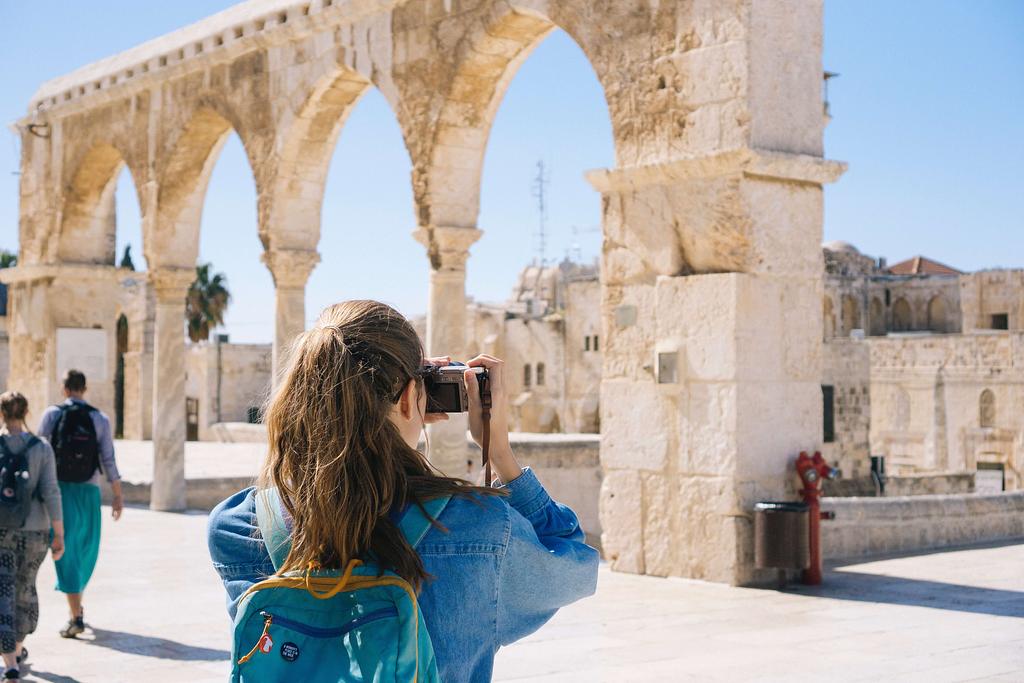5 Travel Idioms You Need This Summer
Updated: 08/02/2023
Travel and tourism is slowing recovering after two years of pandemic restrictions around the world. People want to move, explore, discover and meet, by any means necessary. Where did you go after travel restrictions were lifted?
Thanks for budget air-travel (in Europe), travelling has become a big part of our lives so it's important we know how to express ourselves and talk about the subject confidently in English.
Here are five idioms (with their definitions and examples) you should learn to describe different types of travel experiences.
Get off the beaten track

Definition
If a path or track has been used excessively, it can be described as "beaten". We use this expression to describe a popular tourist destination that everyone goes to. Can you think of an example? The Colosseum, Eiffel Tower or Christ The Redeemer, are all examples of this.
In order to avoid the crowds and find undiscovered places, 'get off the beaten track' and walk a new path that no one else has.
How To Use It
We usually use this expression in an imperitive form or as a question.
"Let's get off the beaten track and find a quiet café somewhere."
"Shall we get off the beaten track and take a break?"
Be adventurous and get off the beaten track at your next destination!
To be on a shoestring budget

The word 'budget' may already give you an inkling? When we budget, we are controlling how much money we spend and if the budget is the length of a shoestring, then it's not very big!
Therefore, the idiom means to travel on a low budget.
How To Use It
Used as a noun, here are some examples.
"We're not going anywhere this year as we're on a shoestring budget. We spent a lot of money on the house."
"I decided to back-pack through Asia because it's cheaper and I'm on a shoestring budget."
Spend a fortune

Definition
The complete opposite therefore is not to plan and budget how you use your traveller's cheques but rather spend a large amount of money and as we all know, is easy to do when you're on holiday.
How To Use It
Use it as you would any verb.
"He spent an absolute fortune on the flight because he booked first class!"
"I refuse to spend a fortune on 5-star hotels. I'd rather rent an apartment."
Culture vulture

Definition
Simply put, a culture vulture describes someone who loves learning about culture and therefore does cultural activities, also while travelling. Do you know anyone like that?
How To Use It
Use it as an adjective.
"She's such a culture vulture, she's always heading into all the museums and churches."
"They love history, they're real culture vultures!"
Rough it
.jpg?locale=en)
Definition
'Rough it' or 'sleep rough' is when you don't sleep in a bed but somewhere 'uncomfortable' or unconventional. It could be on transport or on the floor somewhere.
How To Use It
As a verb.
"I roughed it at the station last night because I missed the last train home!"
"I've never roughed it while travelling because I like to book accomodation well in advance."
Those are your five travel idioms! I wonder which is most memorable for you and I challenge you to memorise them and test yourself every 3-4 days.
Do you know any other travel idioms? Share them in our community!
PS. Learn travel phrasal verbs with Steve in a recorded class.
PPS. We recommend Idioms In Use to learn more common expressions.
Steve
1. Meet a teacher and discover your language level
2. Join A Group Course
3. Become An Ambassador & Earn
4. Connect With People Around The World
Ready to dive in?
Start your language learning journey.
Help someone who's learning English. Share
Privacy Policy
Your privacy is important to us. It is Convo's policy to respect your privacy regarding any information we may collect from you across our website, http://www.britishcommunity.it, and other sites we own and operate.
We only ask for personal information when we truly need it to provide a service to you. We collect it by fair and lawful means, with your knowledge and consent. We also let you know why we’re collecting it and how it will be used.
We only retain collected information for as long as necessary to provide you with your requested service. What data we store, we’ll protect within commercially acceptable means to prevent loss and theft, as well as unauthorised access, disclosure, copying, use or modification.
We don’t share any personally identifying information publicly or with third-parties, except when required to by law.
Our website may link to external sites that are not operated by us. Please be aware that we have no control over the content and practices of these sites, and cannot accept responsibility or liability for their respective privacy policies.
You are free to refuse our request for your personal information, with the understanding that we may be unable to provide you with some of your desired services.
Your continued use of our website will be regarded as acceptance of our practices around privacy and personal information. If you have any questions about how we handle user data and personal information, feel free to contact us.
This policy is effective as of 4 September 2019.
Information Security
Convo is a language community providing linguistic related services.
We collect and use personal information to offer people information, products and services. This policy will apply in all locations where we operate to all forms of information and to all systems used to collect, store, process or transfer information.
In countries where there are different privacy and data protection laws, we will comply with those laws where they meet internationally accepted privacy principles and fair information handling practices.
Convo is committed to:
- performing privacy impact assessments to protect the privacy and rights of its customers and employees
- protecting the confidentiality, integrity and availability of the information it collects, stores, transfers and processes in accordance with UK law and international good practice, and to meeting its legal requirements and contractual obligations
- explaining why it needs personal information, only asking for the personal information it needs and only sharing personal information within the Convo and with other organisations as necessary or where the person concerned has given their consent
- allowing people to request access to the personal information it holds on them and to complain if they believe their information has been mishandled
- not keeping personal information for longer than necessary
- taking measures to protect the rights and freedoms of individuals whose personal information may be transferred to countries with differing data protection laws
- ensuring that actual or suspected breaches of information security are reported and investigated
- assessing and measuring the maturity of its information security controls annually
- applying these standards to its supply chain and delivery partners.
We will provide adequate and appropriate resources to implement this policy and will ensure it is communicated and understood.
Convo will review this global policy statement annually to reflect new legal and regulatory developments and ensure good practice.
Convo uses cookies to ensure you get the best experience on our website through traffic analytics and repeat visits.
.jpg?locale=en)


